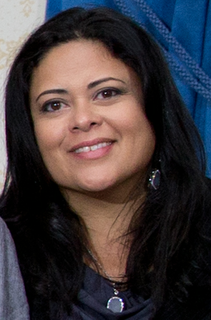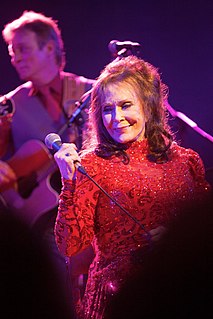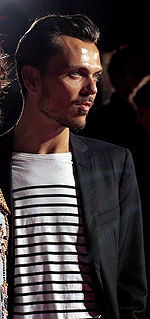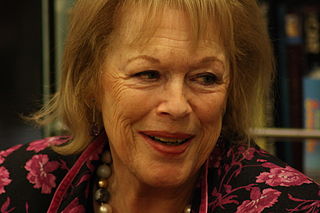A Quote by Maya Soetoro-Ng
My mother would have enjoyed the idea that her name was being used to build bridges. She cared a great deal and was very thoughtful and passionate about education and young women.
Related Quotes
When my daughter went to school, her last name was mine. The school insisted that her father's name be added to hers, not her mother's. The fact that the mother kept her in her womb for nine months is forgotten. Women don't have an identity. She has her father's name today and will have her husband's tomorrow.
My mother didn't feel sorry for herself, she was left with no child support, no alimony at a very young age, with a child to raise, a high school education and she just figured it out. She didn't complain, she didn't rely upon government, she relied upon her own skill set, her own self confidence, her own drive in moxie and her own duty to me and her and she relied upon her family and her faith.
She remembered that once, when she was a little girl, she had seen a pretty young woman with golden hair down to her knees in a long flowered dress, and had said to her, without thinking, "Are you a princess?" The girl had laughed very kindly at her and asked her what her name was. Blanche remembered going away from her, led by her mother's hand, thinking to herself that the girl really was a princess, but in disguise. And she had resolved that someday, she would dress as though she were a princess in disguise.
Mr Thornton would rather have heard that she was suffering the natural sorrow. In the first place, there was selfishness enough in him to have taken pleasure in the idea that his great love might come in to comfort and console her; much the same kind of strange passionate pleasure which comes stinging through a mother's heart, when her drooping infant nestles close to her, and is dependent upon her for everything.
Ultimately I think I learned a lot from my mother - the way she used fashion to make herself feel better; it was a tool she had and she used it very well. Fashion for her wasn't so far as an escape, but certainly a time where she would sit on her own and prepare what she wanted to wear the next day - it turned into bit of a ritual.
The girl was grateful to the young man for every bit of flattery; she wanted to linger for a moment in its warmth and so she said, 'You're very good at lying.' 'Do I look like a liar?' 'You look like you enjoy lying to women,' said the girl, and into her words there crept unawares a touch of the old anxiety, because she really did believe that her young man enjoyed lying to women.
My mother wanted to be a mother. That's the only thing she wanted from the bottom of her heart. She didn't want to be the number one actress - which she was - and she didn't want to be this great legend. All she wanted to be was a mother and she did but God took her away. So I always will empathise and sympathise with women.
The idea of the book ["The Japanese Lover"] came in a conversation that I had with a friend walking in the streets of New York. We were talking about our mothers, and I was telling her how old my mother was, and she was telling me about her mother. Her mother was Jewish, and she said that she was in a retirement home and that she had had a friend for 40 years that was a Japanese gardener. This person had been very important in my friend's upbringing.
I know about her, although she has never crossed my path," he said softly. "I know about her struggles and her defeats. It is because of her defeats that she is to me the lovely one. Out of her defeats she has been born a new quality in woman. I have a name for it. I call it Tandy. I made up the name when I was a true dreamer and before my body became vile. It is the quality of being strong to be loved. It is something men need from women and that they do not get.
My mother had been an incredibly bright kid but her family couldn't afford for her to stay in education. So she lived through me. She was a very remarkable woman and I owe a huge debt to her. She was unashamed about delighting in the fact that I was intelligent, and she drove and pushed me. She was also completely indifferent to popularity.
The concept of 'Momism' is male nonsense. It is the refuge of a man seeking excuses for his own lack of virility. I have listened to many women in various countries, and I have never found a woman who willingly 'mothers' her husband. The very idea is repulsive to her. She wants to mother the children while they are young, but never their fathers. True, she may be forced into the role of mother by a man's weaknesses and childishness, and then she accepts the role with dignity and patience, or with anger and impatience, but always with a secret, profound sadness unexpressed and inexpressible.




































